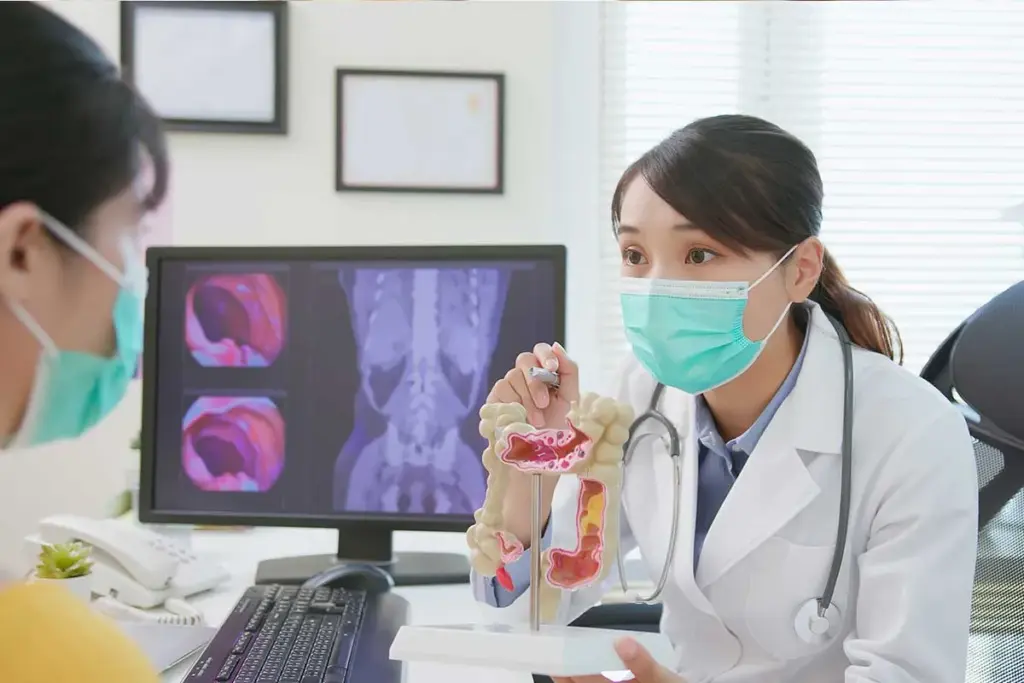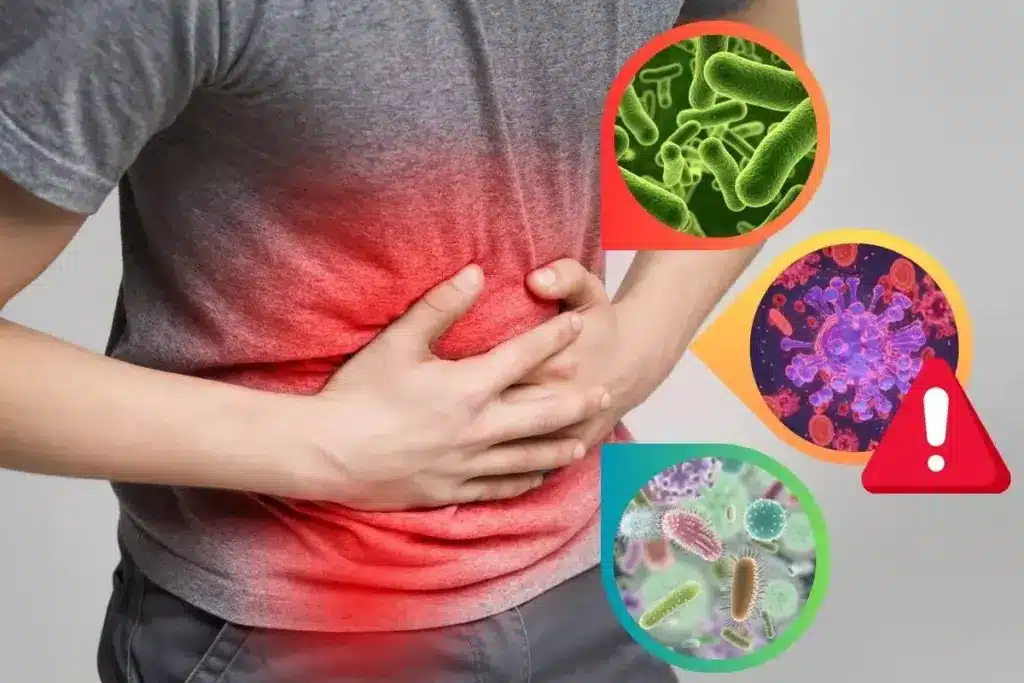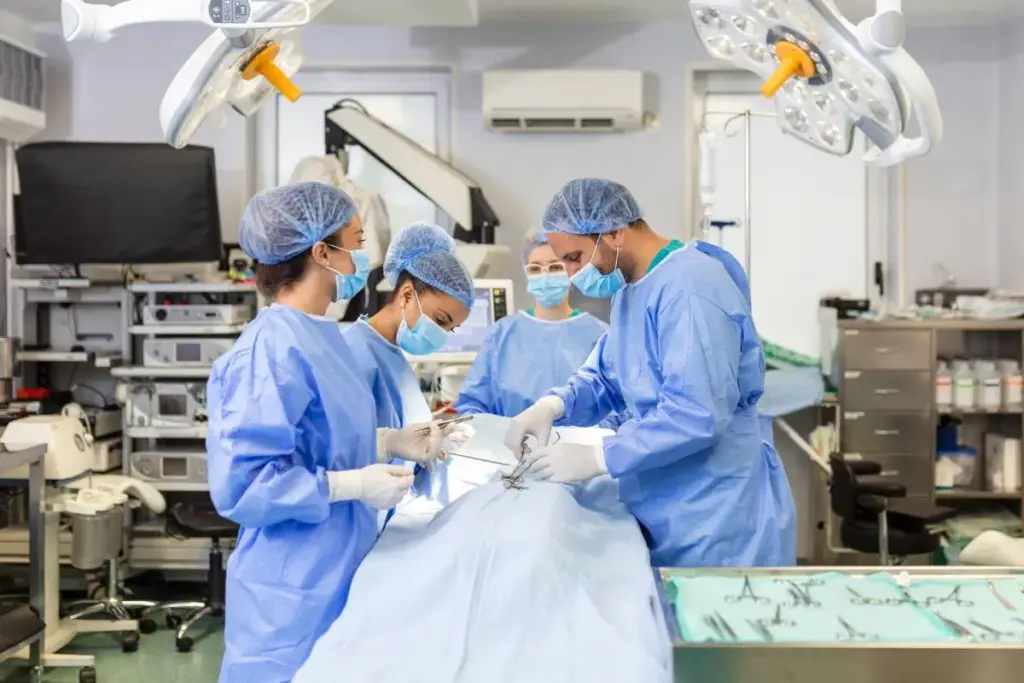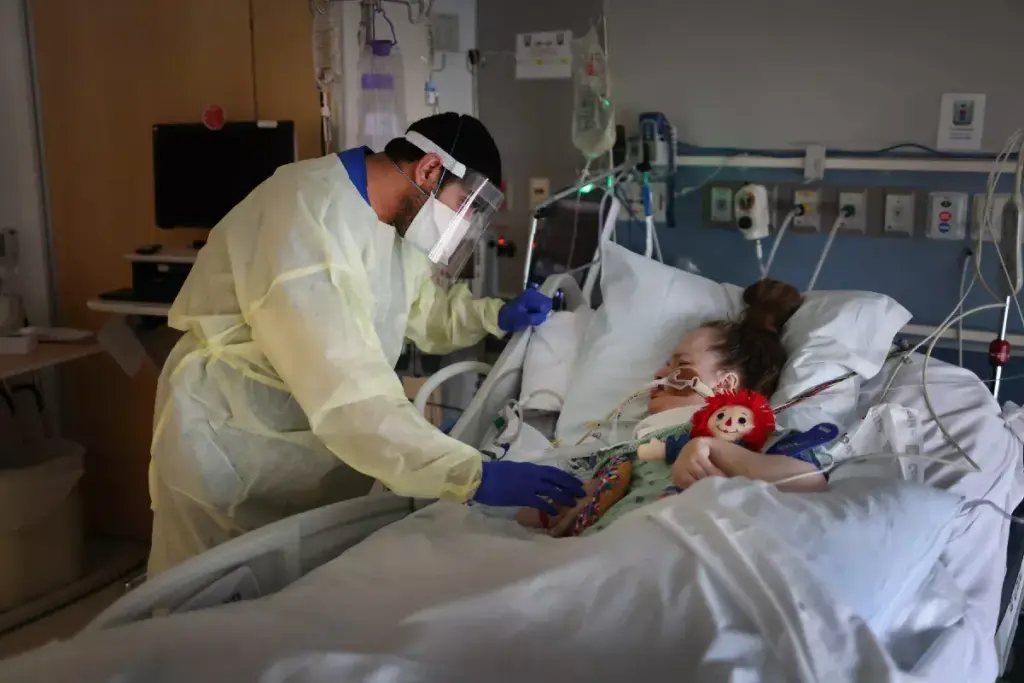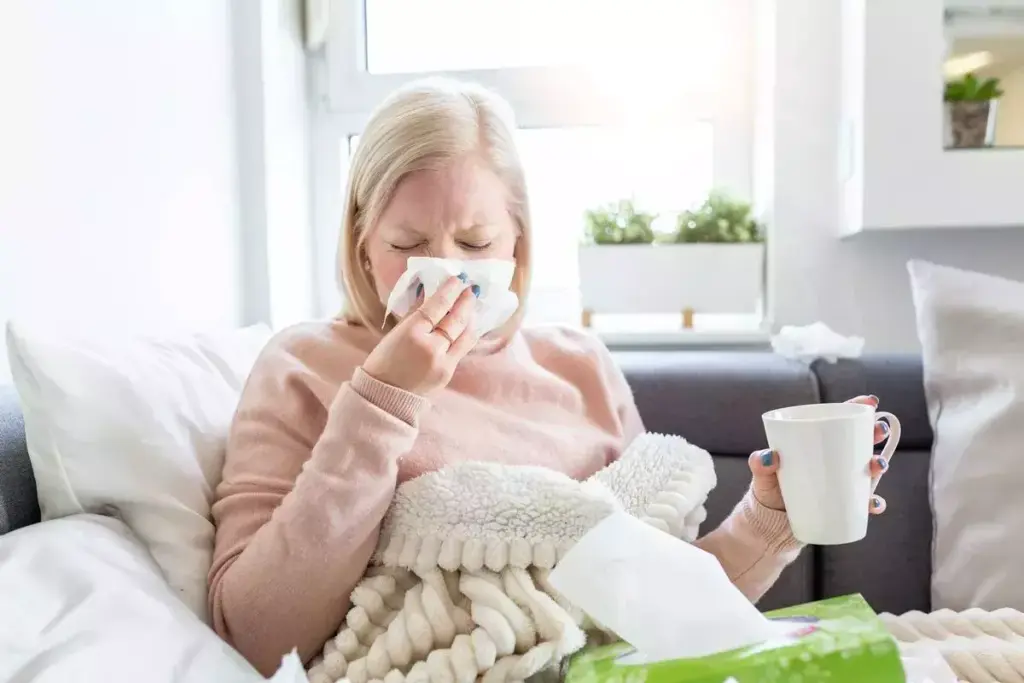What does cancer tiredness feel like? Did you know that nearly 100% of cancer patients feel tiredness during treatment? This isn’t just regular tiredness. It’s a deep exhaustion called cancer fatigue. It’s hard to deal with, and it’s key to understand what it is and why it matters for cancer patients.
Cancer fatigue is more than just feeling tired. It’s a lasting and upsetting symptom that can mess up a patient’s daily life and recovery. Knowing its causes and symptoms is important for managing it well.
Key Takeaways
- Cancer fatigue affects nearly all cancer patients during treatment.
- It’s a profound and debilitating exhaustion that differs from normal tiredness.
- Understanding cancer fatigue is key for effective management.
- Cancer fatigue can greatly affect a patient’s quality of life.
- Managing cancer fatigue needs a complete approach.
Understanding Cancer Fatigue
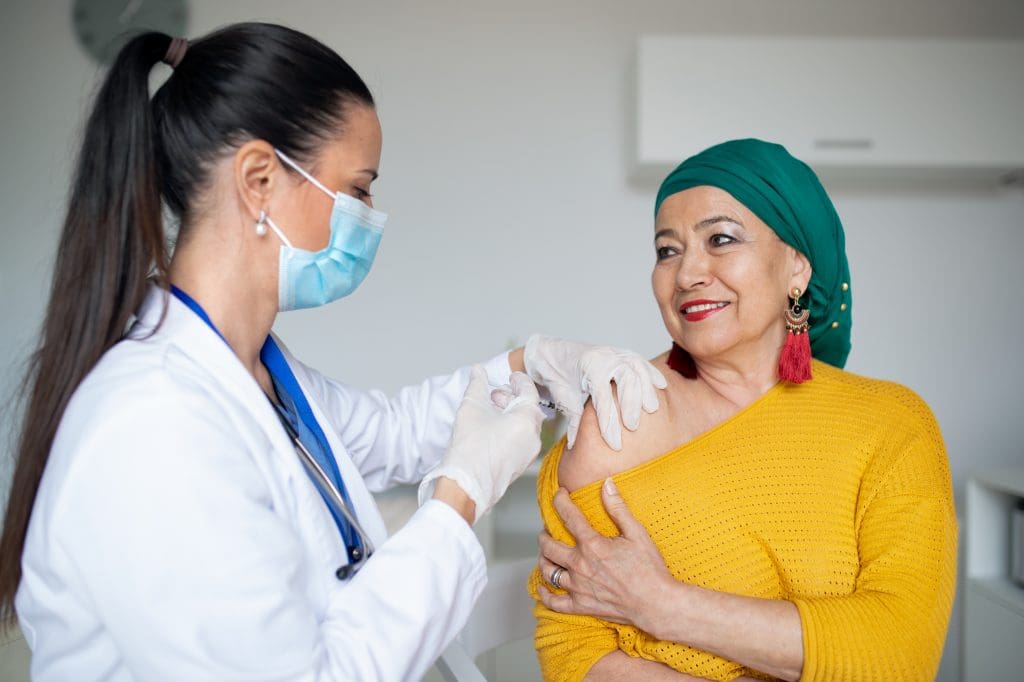
Cancer-related fatigue is more than just feeling tired. It’s a serious condition that affects a person’s body, mind, and spirit. It greatly lowers their quality of life.
Defining Cancer-Related Fatigue
Cancer-related fatigue is a deep exhaustion that doesn’t match the amount of activity. It doesn’t get better with rest. The National Cancer Institute says it’s a common symptom for cancer patients. It affects their daily life and happiness.
“Fatigue is one of the most distressing symptoms of cancer and its treatment,” experts say. Patients feel a deep, lasting exhaustion from it.
How Cancer Fatigue Differs from Normal Tiredness
Unlike regular tiredness, cancer fatigue doesn’t go away with rest. It’s a debilitating weakness that makes daily tasks hard. It also affects social life and hobbies.
Anemia, or low red blood cells, is common in cancer patients. It adds to fatigue. Treating anemia can help reduce some of the fatigue.
It’s important to understand cancer fatigue well. Knowing its unique traits helps in finding better ways to manage it. This way, patients and doctors can improve life quality for those with cancer.
The Physical Sensations of Cancer Fatigue
Cancer fatigue brings many physical feelings. These include feeling extremely tired, weak, and heavy. Each person’s experience is different, so it’s key to understand these feelings.
Overwhelming Exhaustion
One main symptom is feeling completely exhausted. It’s not just being tired; it’s a deep feeling that doesn’t get better with rest. People say it’s a constant, hard-to-deal-with tiredness that gets in the way of daily life.
Persistent Weakness
Many also feel persistent weakness. This makes it hard to do simple things like carry groceries or go up stairs. It’s a big challenge for everyday tasks.
Heavy Limbs and Body Sensations
Some feel like their limbs are heavy, making it hard to move. This feeling can also bring pain or discomfort. It makes things even tougher for them.
Unpredictable Energy Levels
Energy levels can also be unpredictable. Patients might suddenly feel very tired or get a burst of energy. This makes it hard to plan the day. It affects not just the patient but also their loved ones.
Abnormal liver enzymes and high calcium levels can also cause fatigue. For example, liver problems can lead to toxins in the body, making you feel tired. High calcium levels can also make you feel fatigued. Knowing these causes helps in managing fatigue better.
We know that cancer fatigue symptoms vary a lot. By understanding these differences, we can help people manage their condition better. This improves their quality of life.
The Emotional and Mental Impact
Living with cancer fatigue is more than just feeling tired. It affects a person’s mind and emotions deeply. This condition not only takes a toll on the body but also impacts the mind greatly.
Cognitive Effects (“Chemo Brain”)
Cancer fatigue can make it hard to think clearly, a condition known as “chemo brain.” Symptoms include memory loss, trouble focusing, and feeling less sharp. These issues can make everyday tasks hard to do and hurt a person’s ability to work.
- Difficulty in concentrating and making decisions
- Memory lapses and forgetfulness
- Reduced mental processing speed
Emotional Responses to Chronic Fatigue
Cancer fatigue brings on many emotions. Feeling tired all the time can make people feel frustrated, irritable, and sad. It’s hard to keep up with life and enjoy things they used to love.
The emotional toll of cancer fatigue should not be underestimated. It’s important for people to recognize these feelings and get help when they need it.
Psychological Burden of Persistent Tiredness
The mental weight of cancer fatigue is heavy. Feeling tired all the time can lead to depression, anxiety, and a lower quality of life. It’s key to understand this impact to find ways to cope.
Managing the emotional and mental impact of cancer fatigue involves a multifaceted approach. This includes:
- Seeking professional help for cognitive and emotional symptoms
- Practicing stress-reduction techniques, such as meditation or yoga
- Engaging in support groups to share experiences and coping strategies
Research shows that high LDH levels and inflammation markers like ESR and CRP might link to cancer fatigue. Watching these biomarkers could help understand why some cancer patients feel so tired.
Common Causes of Cancer Fatigue
Cancer fatigue comes from many sources, like the cancer itself and its treatment. Knowing these causes helps manage fatigue better.
The Cancer Itself
Cancer can make you tired in different ways. Tumors can release substances that mess with energy levels. Some cancers, like leukemia and lymphoma, can make it hard for blood to carry oxygen. This leads to more fatigue.
Treatment-Related Causes
Cancer treatments like chemotherapy, radiation, and surgery also cause fatigue. These treatments harm healthy cells, lowering energy. For example, chemotherapy can cause anemia, and radiation can make fatigue worse over time.
Psychological Factors
The mental stress of cancer diagnosis and treatment is huge. Stress, anxiety, and depression can make you feel more tired. The emotional strain of cancer can really take a toll on your energy and well-being.
Nutritional Deficiencies and Dehydration
Not getting enough nutrients and staying hydrated can also make you tired. Cancer and treatments can mess with appetite and nutrient absorption. Eating well and drinking enough water is key to fighting cancer fatigue.
How Cancer Fatigue Affects Daily Life
Living with cancer fatigue is tough. It changes how we do daily things and affects our relationships. It’s not just feeling tired. It’s a deep, lasting tiredness that affects every part of life.
Impact on Work and Productivity
Cancer fatigue makes it hard to work and stay productive. Even simple tasks feel like a lot. The energy needed for work can be too much.
This can mean working less, changing jobs, or taking time off. Adjusting to these changes can be tough, both financially and emotionally.
To handle work challenges, patients can look into flexible work options. They can talk to their employer about changing duties. Or, they might need to look into disability benefits.
Effects on Family and Social Relationships
Cancer fatigue also affects family and social life. Feeling tired all the time makes it hard to join in social activities. This can make people feel lonely.
Family members might have to do more to help out. This can change how the family works together.
Talking openly with loved ones about cancer fatigue can help keep relationships strong. Getting support from family, friends, or support groups can also help.
Challenges with Basic Activities
Even simple tasks like grocery shopping or personal care can be hard with cancer fatigue. Patients might need to break tasks into smaller steps. They can also use tools to make things easier.
- Breaking tasks into smaller, manageable steps
- Using assistive devices to reduce physical exertion
- Seeking help from family or caregivers when needed
Adjusting Expectations and Priorities
Learning to adjust expectations and priorities is key to managing cancer fatigue. Patients need to know their limits and pace themselves. This means setting realistic goals and taking breaks.
By adjusting in these ways, patients can deal with cancer fatigue symptoms better. It’s also important to know when to see a doctor if fatigue gets worse or if other symptoms appear.
Diagnosing Cancer Fatigue
To figure out cancer fatigue, doctors use a detailed process. This helps them find out why patients feel so tired.
Medical Assessment Approaches
First, doctors look at the patient’s medical history and do a physical check-up. They check the patient’s health, symptoms, medicines, and past treatments.
Key parts of the medical check-up are:
- Looking at the patient’s cancer treatment history
- Checking if the patient is getting enough nutrients and water
- Finding out if there are other health issues that might cause tiredness
Ruling Out Other Medical Causes
It’s important to make sure tiredness isn’t from something else. Doctors might do tests to find or rule out other conditions.
Other reasons for tiredness can be:
- Anemia
- Thyroid problems
- Diabetes
- Heart disease
Fatigue Assessment Tools and Questionnaires
Doctors use special tools and questionnaires to measure how tired someone is. These tools help them understand how tiredness affects the patient’s life. Then, they can plan the best way to help.
Examples of these tools are:
- Brief Fatigue Inventory (BFI)
- Fatigue Severity Scale (FSS)
- European Organization for Research and Treatment of Cancer Quality of Life Questionnaire (EORTC QLQ-C30)
Laboratory Tests That May Be Ordered
Lab tests are key in finding the cause of cancer fatigue. They can spot things like anemia, infections, or metabolic issues.
Common lab tests are:
| Test | Purpose |
| Complete Blood Count (CBC) | To find anemia, infection, or blood problems |
| PSA Test | To check on prostate cancer |
| CA-125 Test | To watch ovarian cancer |
As one expert says,
“Getting cancer fatigue right is key to better care and a better life for cancer patients.”
The Timeline of Cancer Fatigue
Cancer-related fatigue changes over time, from diagnosis to treatment and beyond. Knowing this timeline helps manage expectations and cope with the disease.
Onset of Fatigue
Fatigue can start at different times for people with cancer. For some, it begins with the diagnosis, due to emotional stress and treatment worries. Others feel it more during treatment, like chemotherapy or surgery.
Key factors influencing the onset of cancer fatigue include:
- The type and stage of cancer
- The treatment modalities used
- The patient’s overall health and nutritional status
- Psychological factors such as anxiety and depression
Duration During Active Treatment
During treatment, fatigue levels can change. Some treatments, like chemotherapy, make you tired more in the days after. Others keep you tired all the time.
It’s important for patients to tell their healthcare team about their fatigue. This helps adjust treatment plans and get tips on managing fatigue.
Post-Treatment Fatigue Patterns
After treatment, fatigue patterns can shift. Some people feel better quickly, while others stay tired for months or years. What happens next depends on the treatment, any side effects, and how fast you recover.
Long-Term Cancer Fatigue in Survivors
Survivors of cancer may stay tired for a long time. This can be because of hormonal changes, chronic pain, or the emotional weight of being a survivor.
Strategies for managing long-term cancer fatigue include:
- Gradual increase in physical activity tailored to the individual’s capacity
- Nutritional counseling to optimize diet
- Stress management techniques such as mindfulness or meditation
- Regular follow-up with healthcare providers to monitor and address any underlying causes
Understanding cancer fatigue’s timeline helps patients and doctors manage it better. This improves life quality during and after cancer treatment.
Experiencing Cancer Fatigue in Different Cancer Types
Cancer fatigue affects people in different ways, depending on the cancer type and stage. Treatments also play a big role in how fatigue feels. Each cancer type can cause fatigue in unique ways.
Blood Cancers and Fatigue
Blood cancers like leukemia and lymphoma can make people very tired. Leukemia blood tests and lymphoma blood tests show problems that can lead to anemia. This is a common reason for feeling tired.
Patients with blood cancers may also feel tired from the cancer itself and treatments like chemotherapy. Other symptoms like night sweats, fever, and weight loss can make fatigue worse. It’s important to manage these symptoms to improve life quality.
Solid Tumors and Energy Levels
Solid tumors, like breast, lung, and colon cancer, can also cause a lot of fatigue. The size and location of the tumor, and if it has spread, affect energy levels. Tumor markers like CEA marker for colon cancer and AFP tumor marker for liver and germ cell cancers show how the disease is progressing. This can relate to how tired someone feels.
Treatments for solid tumors, like surgery, radiation, and chemotherapy, can also make people very tired. The combination of the cancer and its treatment can make patients feel extremely weak and exhausted.
Metastatic Cancer and Chronic Fatigue
Metastatic cancer, where cancer spreads to other parts of the body, often causes chronic and severe fatigue. Symptoms like pain, nausea, and shortness of breath can also contribute to feeling tired.
Patients with metastatic cancer often feel tired all the time. This can make it hard to do daily activities and enjoy life. Managing fatigue in metastatic cancer needs a full approach that helps both the body and mind.
Hormone-Sensitive Cancers and Fatigue
Hormone-sensitive cancers, like some breast and prostate cancers, can cause fatigue. This is due to the cancer itself and its treatment. Hormonal therapies can cause symptoms like hot flashes and mood changes. These can indirectly affect energy levels.
It’s important to understand how hormone-sensitive cancers and their treatments affect fatigue. This helps in finding ways to manage it. This might include adjusting treatments, managing side effects, and making lifestyle changes to boost energy.
Medical Treatments for Cancer Fatigue
Medical treatments are key in managing cancer fatigue. They help improve patient outcomes. Cancer fatigue is complex, influenced by the cancer, treatments, and psychological factors.
Healthcare providers use various treatments to manage cancer fatigue. These aim to reduce symptoms, address causes, and enhance quality of life.
Medications That May Help
Several medications can help with cancer fatigue. These include:
- Psychostimulants: Medications like methylphenidate may reduce fatigue in cancer patients.
- Antidepressants: Antidepressants might be used if depression worsens fatigue.
- Steroids: Corticosteroids can offer short-term relief from fatigue, but long-term use is limited due to side effects.
It’s important to remember that these medications work differently for everyone. Healthcare professionals should carefully consider and monitor their use.
Treating Underlying Contributors
It’s vital to address the causes of fatigue in cancer patients. This may involve:
| Underlying Cause | Treatment Approach |
| Anemia | Blood transfusions or medications that stimulate red blood cell production |
| Nutritional deficiencies | Dietary adjustments or supplements to address deficiencies |
| Hormonal imbalances | Hormone replacement therapy or medications to regulate hormonal imbalances |
By treating these causes, healthcare providers can help reduce fatigue and improve outcomes.
Managing cancer fatigue is a complex challenge. It requires a personalized approach. Combining medical treatments with lifestyle changes and support can help patients manage fatigue better and improve their quality of life.
Lifestyle Strategies for Managing Cancer Fatigue
Cancer fatigue can be really tough, but there are ways to handle it. By making a few changes in your daily life, you can fight off the tiredness that comes with cancer and its treatment.
Energy Conservation Techniques
Learning to save energy is a big help in fighting cancer fatigue. This means focusing on what’s important, taking breaks, and not pushing too hard. This way, you can keep your energy up and get more done each day.
- Prioritize tasks based on importance and urgency.
- Break larger tasks into smaller, manageable chunks.
- Take short breaks between activities to rest.
Using these energy conservation techniques can make a big difference in your daily life.
Nutrition for Energy Support
Eating right is key to managing cancer fatigue. The right foods can boost your energy, while bad foods can make you feel worse. Focus on foods like fruits, veggies, whole grains, lean proteins, and healthy fats.
Some cancer fatigue tips for food include:
- Eating smaller, more frequent meals to maintain energy.
- Staying hydrated by drinking plenty of water.
- Avoiding foods high in sugar, salt, and unhealthy fats.
Also, if you have anemia and cancer, you might need to pay extra attention to iron. Your doctor might suggest diet changes or supplements.
Physical Activity Guidelines
It might seem odd, but physical activity can actually help with cancer fatigue. Start slow and gradually do more. Gentle exercises like walking, yoga, or swimming are good choices.
Here are some guidelines:
- Begin with short sessions (10-15 minutes) and gradually increase duration.
- Choose low-impact activities that are enjoyable.
- Listen to your body and rest when needed.
Regular exercise can help with cancer fatigue relief by improving your physical health and reducing tiredness.
Sleep Hygiene Practices
Good sleep habits are vital for managing cancer fatigue. Stick to a regular sleep schedule, create a cozy sleep space, and avoid activities that get you excited before bed. This can help you sleep better.
Sleep hygiene tips include:
- Maintaining a regular sleep schedule.
- Creating a sleep-conducive environment (cool, dark, quiet).
- Avoiding caffeine and electronic screens before bedtime.
By following these sleep tips, you can improve your overall health and better manage managing cancer fatigue.
Complementary Approaches to Cancer Fatigue Relief
Complementary approaches help tackle cancer fatigue in a holistic way. They focus on the body, mind, and spirit. These methods can boost well-being and lessen fatigue when used with traditional treatments.
Mind-Body Interventions
Mind-body interventions aim to improve how the mind affects the body. They include:
- Meditation: It can lower stress and anxiety, helping with cancer fatigue.
- Yoga: Gentle yoga boosts flexibility, balance, and strength while easing fatigue and stress.
- Guided Imagery: This uses visualization to relax and improve well-being, possibly reducing fatigue.
These methods empower patients to manage their symptoms actively.
Acupuncture and Massage
Acupuncture and massage are being studied for cancer fatigue relief.
Acupuncture uses thin needles in specific body points. It might help by boosting energy and well-being in cancer patients.
Massage therapy eases muscle tension, promotes relaxation, and improves sleep. This can help reduce fatigue. It’s important to see a licensed therapist who knows how to care for cancer patients.
Herbal Supplements (With Cautions)
Some cancer patients use herbal supplements to fight fatigue. But caution is key:
- Ginseng: Some research suggests it might help with cancer fatigue, but more studies are needed.
- Other Herbs: Herbs like ashwagandha and rhodiola rosea are used for fatigue. But their effect on cancer fatigue is not proven.
Always talk to a healthcare provider before trying herbal supplements. They can affect cancer treatments and have side effects.
Adding these complementary methods to their care plan can help cancer patients feel better and manage fatigue.
Support Resources for Coping with Cancer Fatigue
Managing cancer fatigue requires using support resources that fit each person’s needs. This condition can make simple tasks hard. Luckily, there are many ways to help patients deal with it.
Cancer Support Groups
Cancer support groups offer a place for patients to share and connect. They can be in hospitals, community centers, or online. Being part of a group gives emotional support, practical tips, and a sense of belonging.
A study showed that support group members felt better mentally and less alone.
Online Communities and Resources
The internet has many resources for cancer patients, like forums and educational sites. Online communities offer information, emotional support, and connections with others who get it.
Working with Occupational Therapists
Occupational therapists help patients manage fatigue and stay independent. They give advice on saving energy, pacing activities, and adapting tasks to reduce fatigue.
An occupational therapist might teach a patient to prioritize, take breaks, and use devices to make tasks easier.
Family Education and Support
Family and caregivers are key in supporting cancer patients. Teaching them about cancer fatigue is important. Family education helps them understand the patient’s needs, manage expectations, and assist practically.
| Support Resource | Description | Benefits |
| Cancer Support Groups | Local or online groups where patients share experiences | Emotional support, practical advice, sense of community |
| Online Communities | Websites, forums, and blogs providing information and support | Valuable information, emotional support, connections with others |
| Occupational Therapists | Professionals helping patients manage fatigue and maintain independence | Personalized strategies for energy conservation and daily task adaptation |
| Family Education | Educating family members about cancer fatigue and support | Better understanding of patient needs, practical assistance |
It’s important for patients to know when to see a doctor for fatigue. If fatigue is severe, lasts a long time, or affects daily life, they should talk to their doctor.
Conclusion
Understanding and managing cancer fatigue is key to improving life quality for those with cancer. This fatigue is complex, affecting not just the body but also the mind and emotions. It’s a big challenge for many.
We’ve looked at what cancer fatigue is, its symptoms, and how it affects daily life. We’ve also talked about ways to manage it, from medical treatments to lifestyle changes. There are many strategies and resources available.
To manage cancer fatigue well, a mix of treatments and lifestyle changes is needed. This includes medicines, addressing underlying issues, and making healthy lifestyle choices. These choices include saving energy, eating right, and staying active.
By using these strategies and getting support, patients can handle cancer fatigue better. Support groups and online communities are great resources. They help patients feel less alone and more supported. A holistic approach to managing cancer fatigue is essential. It ensures patients get the care and support they need during this tough time.
FAQ
What is cancer fatigue, and how does it differ from normal tiredness?
Cancer fatigue is a deep, lasting tiredness that doesn’t go away with rest. It’s more intense and lasts longer than regular tiredness. It also affects daily life more, causing weakness, pain, and shortness of breath.
What are the physical sensations associated with cancer fatigue?
People with cancer fatigue often feel extremely tired, weak, and heavy. Their energy levels can change suddenly, making everyday tasks hard. High calcium levels and abnormal liver enzymes can also make them feel more tired.
How does cancer fatigue affect daily life?
It can really change how people live, affecting work, family, and social life. It makes simple tasks hard. So, people might need to adjust their plans to cope with it.
What are the common causes of cancer fatigue?
It can come from the cancer itself, treatments, mental health, and not eating well. Different cancers and treatments can cause it. Not getting enough nutrients can make it worse.
How is cancer fatigue diagnosed?
Doctors check for cancer fatigue by looking at medical history and using special tests. They might do blood tests to find out why someone is tired.
What are the treatment options for cancer fatigue?
Doctors can use medicine, lifestyle changes, and other methods to help. Treating the cause of fatigue can make a big difference.
How can lifestyle strategies help manage cancer fatigue?
Changes like saving energy, eating right, and getting enough sleep can help. Learning to rest when needed and eating well can boost energy.
What are some complementary approaches to cancer fatigue relief?
Things like meditation, acupuncture, and herbal supplements might help. But, always talk to a doctor before trying them.
How can support resources help patients cope with cancer fatigue?
Groups, online forums, and therapists can offer emotional and practical help. Family support is also key.
Can cancer fatigue be managed effectively?
Yes, with the right approach. This includes medicine, lifestyle changes, and support. Understanding and managing cancer fatigue is possible.
Are there any laboratory tests that can help diagnose the underlying causes of cancer fatigue?
Yes, tests like blood counts and tumor markers can find problems like anemia or infection.
How does anemia contribute to cancer fatigue?
Anemia, or low blood cells, can make you feel very tired. It’s common in cancer patients and affects energy and strength.
Can cancer fatigue vary in different types of cancer?
Yes, it can. Fatigue levels differ in blood cancers, solid tumors, and hormone-sensitive cancers. The type and stage of cancer play a role.



